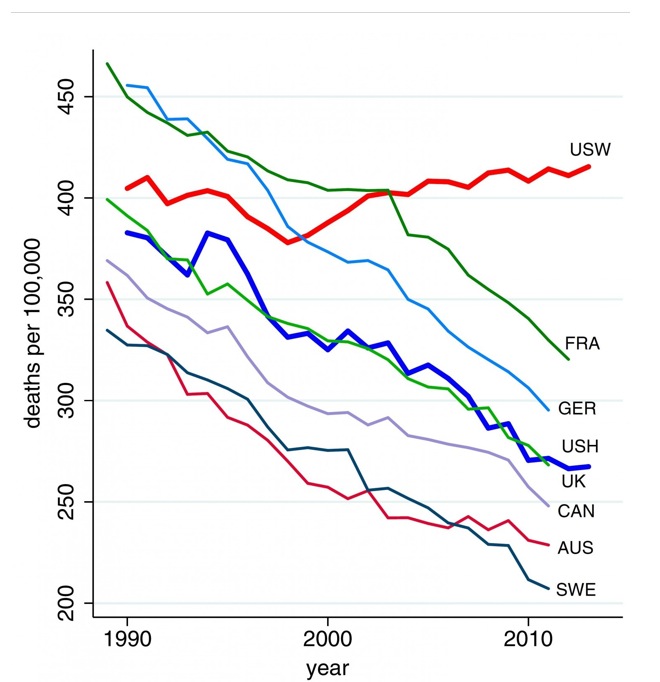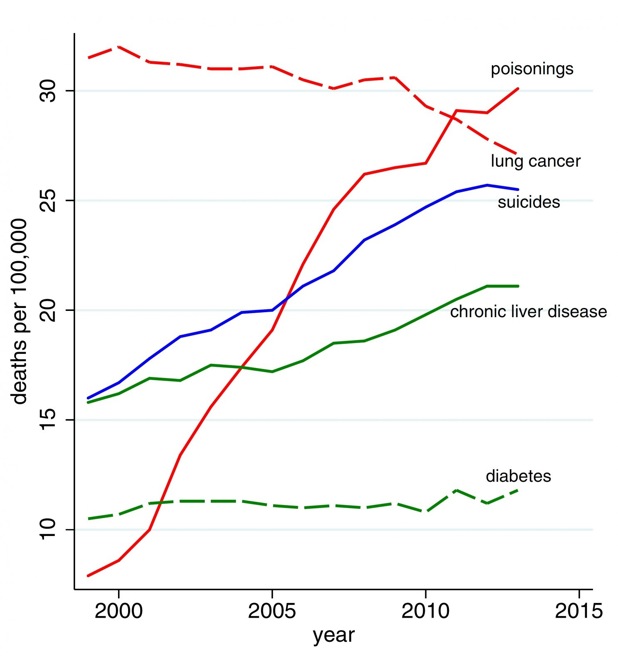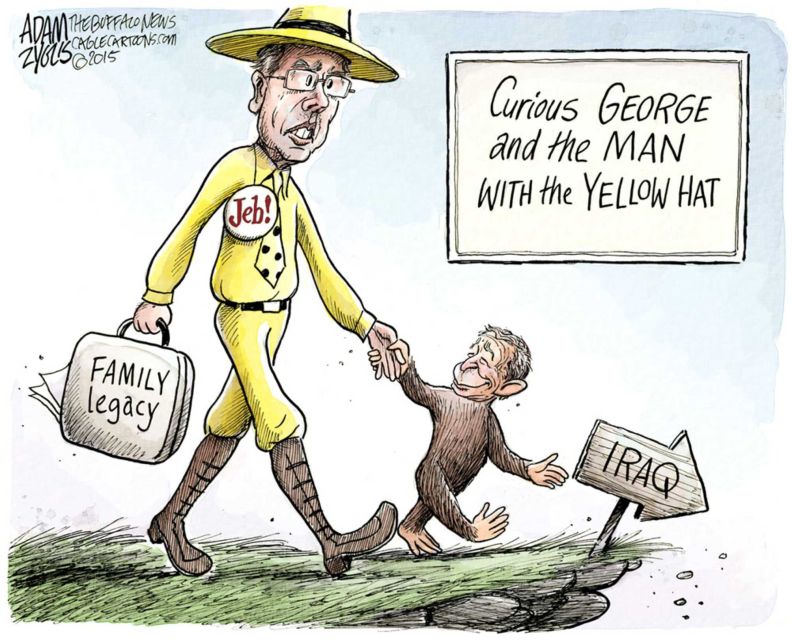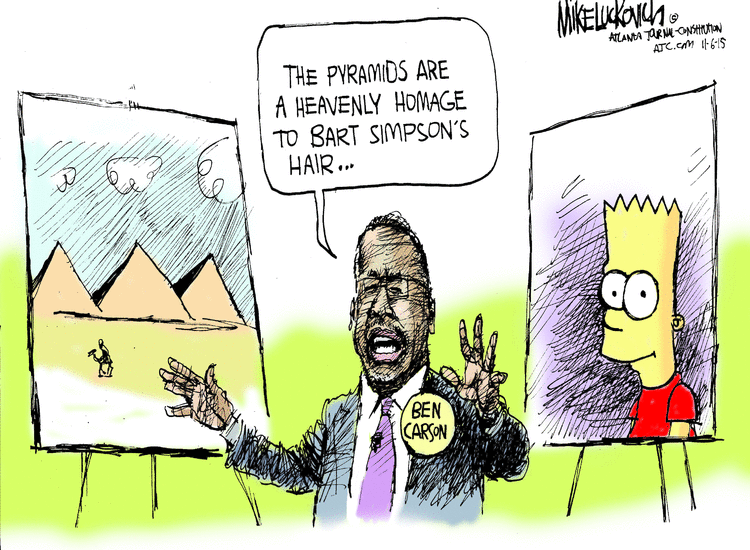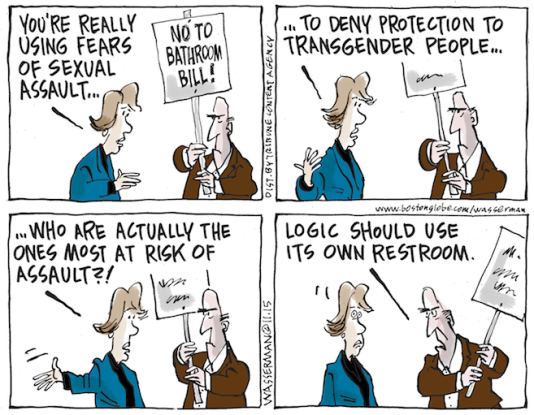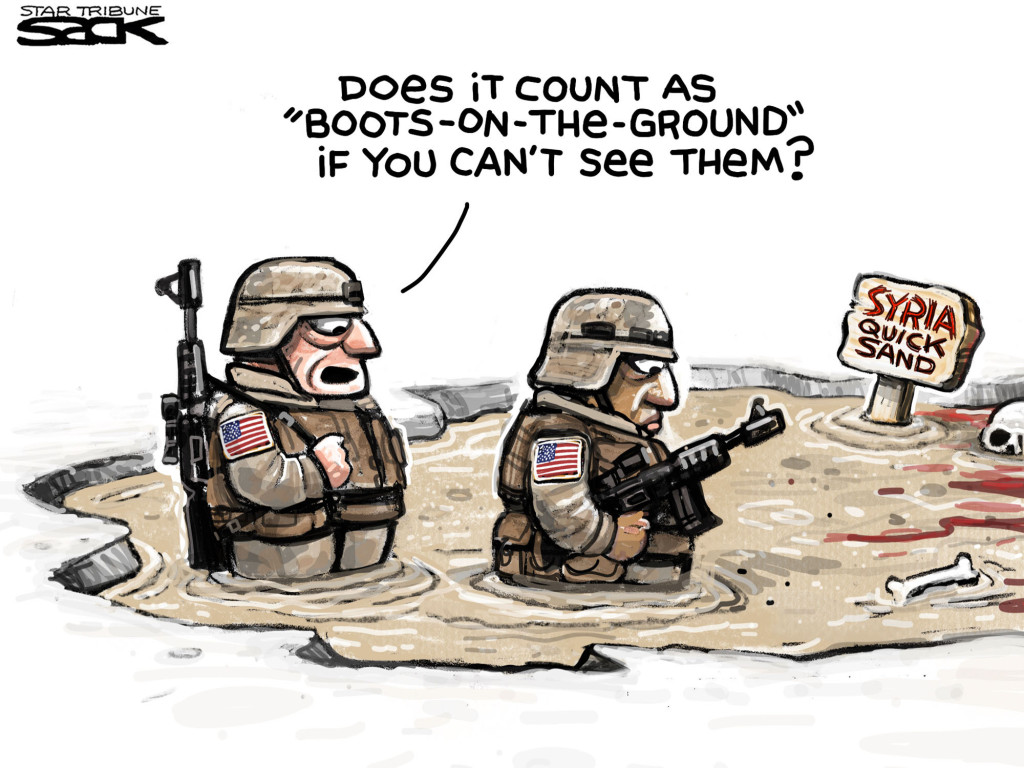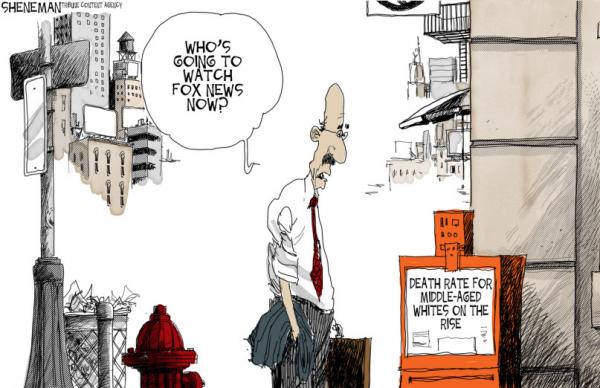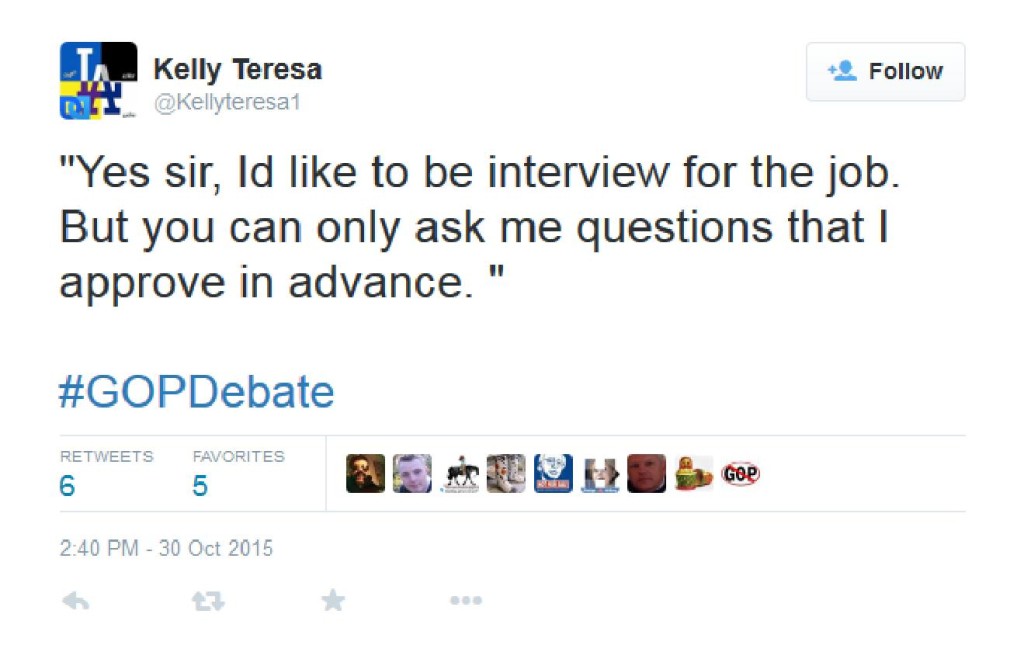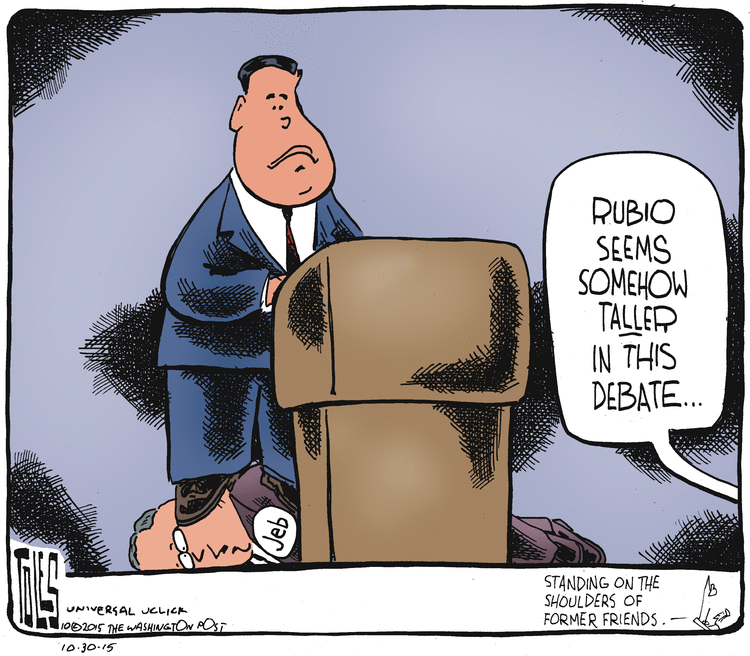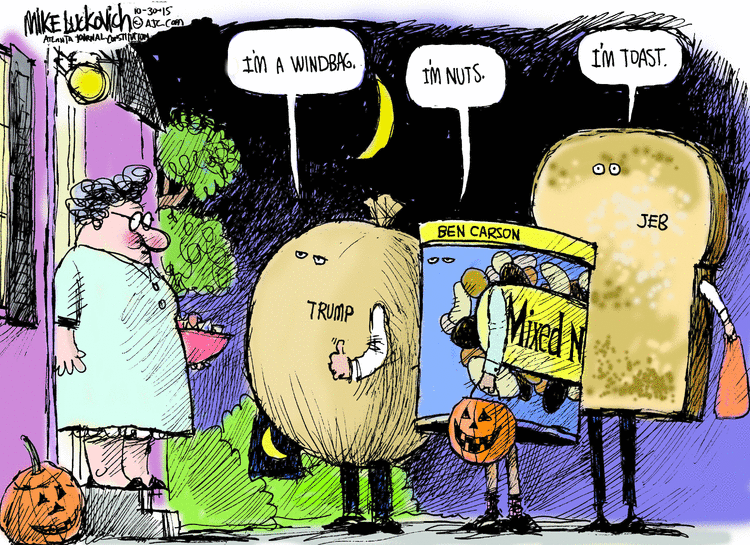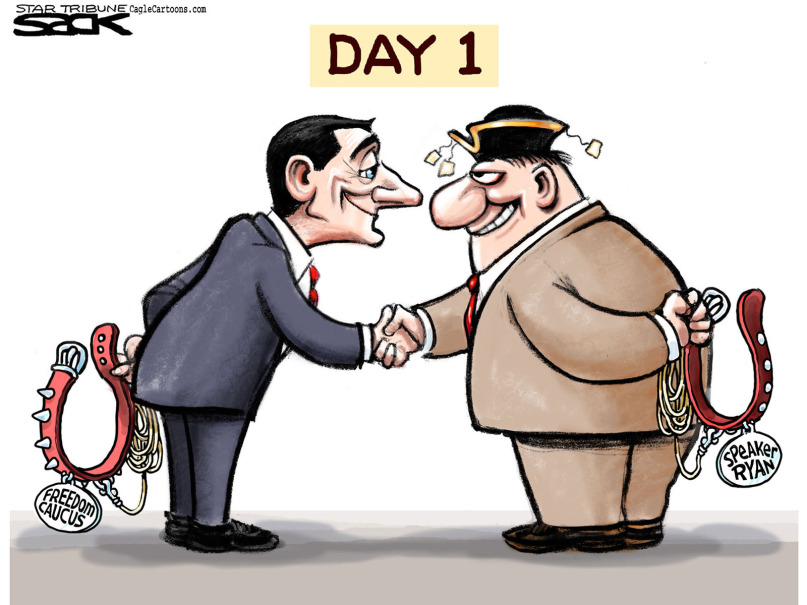Many pundits have commented on research by Angus Deaton and Anne Case of Princeton (h/t: Naked Capitalism for an ungated copy of the report) showing that mortality rates for middle-aged white Americans have risen since 1999, in contrast to the patterns for every other racial group and for residents of virtually every other affluent country. Here is a comparison of mortality rates among developed countries, with the US middle-aged white population:
“USW” above stands for US non-Hispanic Whites, while “USH” is US Hispanics, both are census descriptions. Deaton and Case found that rising substance abuse, including alcohol-related disease and painkiller overdose, was the main cause of the disturbing trend:
“Poisonings” refers to drugs and opioids. White Americans are killing themselves directly or indirectly, in increasing numbers. Suicide is up, and so are deaths from drug poisoning and the chronic liver disease that excessive drinking causes. This has happened before, in Russia after the fall of Communism. But it’s a shock to see it in America.
Why this has happened with few noticing until now, is a great question. There have been warning signs of distress, such as the fact that US life expectancy has stopped rising, and that death rates among white women had risen (and over the same time period examined in the Deaton-Case study). USA Today reported in 2008 that the problem highlighted by Deaton and Case already was already flowering in the Deep South and Appalachia. Citing a study by the Harvard School of Public Health and the University of Washington, they found that:
4% of the male population and 19% of the female population experienced either declines or stagnation in their life expectancy in the ’80s and ’90s.
Krugman in Monday’s NYT called it “Despair, American Style“, but like others, did not offer a complte explanation of the phenomena. Deeper analysis is necessary. It would be helpful to see the data mapped. An educated guess is that it is correlated with states that made up the old Confederacy and the American rust belt, as the 2008 Harvard study found.
For example, a 2013 report by the Trust for America’s Health (TFAH) identified West Virginia as leading the nation in drug overdose deaths, with a rate of 28.9 per 100,000 residents. The state’s fatal overdose rate increased by 605% between 1999 and 2010, and has jumped 1,056% since 1979. The majority of these deaths are attributable to the abuse of addictive prescription painkillers.
Assuming that Krugman is correct and it is related to despair, maybe we should look at whether this cohort possesses the things necessary to make life worthwhile, including food security, and a decent place to live, a way to be a part of a larger community, a sense of self-worth. If you’ve lived long enough to see people break, and then try to figure out why they did, while others did not, a lot of it is whether they were part of a supportive community, or an indifferent/cruel environment.
Job and income insecurity causes stress, and stress is a killer. Over an extended period of time, the physical effects of stress can result in long term adverse effects to health, including contributing to chronic pain and depression. Some manage to find relief by opting to buy weed online, but others struggle to get a hold of these products due to local legislation and turn to their doctors for other methods. Some may even find themselves using cambodian mushrooms to help manage their anxiety and stress before turning to any doctor’s orders.
But our physicians are also at fault. Here is a CDC article that says that the amount of pain Americans report has not increased, while the prescribing of pain meds has quadrupled since 1999. Deaton and Case also point out that opioids are prescribed far more often here to treat maladies that include pain than in other countries.
This didn’t happen yesterday, and it won’t be cured by exhortations to “eat healthy,” or “do yoga,” or to follow the great American mantra: “study hard”. To end despair in the working class, we need a better program:
(a) Supportive communities that end stigmatizing of low income earners
(b) Universal health care
(c) A jobs guarantee, with a living minimum wage, so people have better options than the Dollar Store or fast food
(d) Free college, so parents believe that their kids have a shot at a better life
Job and income insecurity are insidious. When you spend a few years out of work, despair creeps in. Despair will push you to the fringes of society, and then, society will blame you for being there.
A redesign of our capitalism is the answer.
Does any presidential candidate support this?

